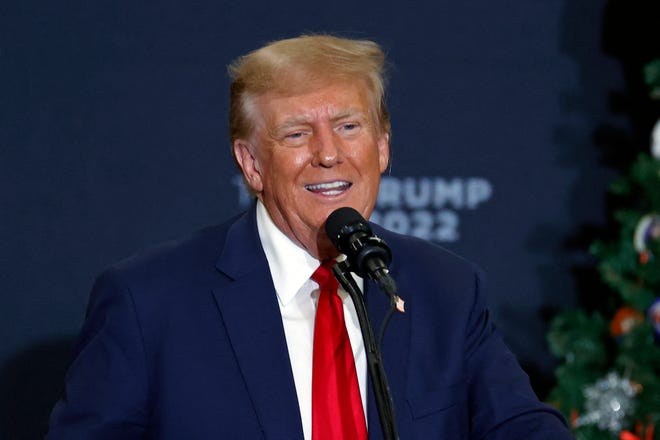Trump paid me to find voter fraud. Then he lied after I found 2020 election wasn’t stolen.
Can a steady diet of lies and innuendo overcome the truth?
In November 2020, former President Donald Trump asserted that voter fraud had altered the outcome of the 2020 presidential election. The day after the election, his campaign hired an expert in voter data to attempt to prove Trump’s allegations and put him back in the White House.
I am the expert who was hired by the Trump campaign.
The findings of my company’s in-depth analysis are detailed in the depositions taken by the Select Committee to Investigate the January 6th Attack on the United States Capitol. The transcripts show that the campaign found no evidence of voter fraud sufficient to change the outcome of any election. That message was communicated directly to White House chief of staff Mark Meadows.
Our findings have also been subpoenaed by special counsel Jack Smith’s federal investigation and Fulton County District Attorney Fani Willis’ investigation in Georgia. Those emails and documents show that the voter data available to the campaign contained no evidence of large-scale voter fraud based on data mining and fraud analytics.
More important, claims of voter fraud made by others were verified as false, including proof of why those claims were disproven.
And yet, the cries that the election was lost or stolen due to voter fraud continue with no sign of stopping. Whether a stump speech, outrageous lawsuits like the so-called Kraken cases filed by Sidney Powell, Rudy Giuliani’s lies or the ongoing misguided efforts of people determined to prove the election was stolen, the constant drumbeat hardens people’s hearts and minds to the truth about the 2020 election.
Trump’s trial raises questions:If Trump’s sure he has immunity, he should work with – not against – prosecutor Jack Smith
Rudy Giuliani lied about voter fraud in Georgia
It’s part of a steady diet of innuendo, misrepresentations and outright lies when it comes to the issue of voter fraud. Giuliani admitted he lied about Ruby Freeman and her daughter committing election crimes in Georgia. Stories that set the record straight about election innuendo are not typically broadcast in right-leaning media, which means that millions of people receive no information to help them make a more informed decision about what happened in 2020.
What these claims don’t take into account is that voter fraud is detectable, quantifiable and verifiable. I have yet to see anyone offer up “evidence” of voter fraud from the 2020 election that provides these three things.

My company’s contract with the campaign obligated us to deliver evidence of voter fraud that could be defended in a court of law. The small amount of voter fraud I found was bipartisan, with about as many Republicans casting duplicate votes as Democrats.
This is a crime of privilege: Those with two homes sometimes take two bites of the electoral apple.
There were also small numbers of deceased voters. Still, nothing emerged that could provide a solid basis for a legal challenge to an election result in any of the states we evaluated.
Additional legal hurdles beyond solid evidence of fraud stand in the way of any effort to overturn or negate an election result through our legal system. Even if it could be shown that more fraudulent votes were cast in a state than the margin of victory in 2020, no one can determine for which candidate each fraudulent ballot was cast.
Backlash will be swift:Banning Trump from the 2024 ballot defies democracy. Courts shouldn’t usurp voters’ rights.
Trump’s claims of voter fraud have no foundation in the truth
We vote anonymously − with good reason. No candidate can credibly claim that a fraudulent vote was credited to their opponent unless the person who cast that vote tells us.
This means that a candidate trying to use voter fraud as the reason to change an election result cannot show that the fraudulent votes caused their election loss.
As a former gubernatorial candidate, I can admire the discipline it takes to stay on message on a single issue. There is no doubt that voter fraud can animate people. But it is one thing to provide a rallying point for supporters and quite another to drag our election infrastructure and legal system into a foundationless set of false claims.
A better use of time, money and energy would be to address systemic weaknesses in our election systems – such as the distressing lack of national election infrastructure to enforce election integrity, destructive practices to our elections such as gerrymandering, and leveling the playing field so that our elections become fairer and more competitive.
If voter fraud had impacted the 2020 election, it would already have been proven. Maintaining the lies undermines faith in the foundation of our democracy.

Ken Block owns Simpatico Software Systems and is the author of “Disproven: My Unbiased Search for Voter Fraud for the Trump Campaign, the Data That Shows Why He Lost, and How We Can Improve Our Elections,” coming out on March 12.


